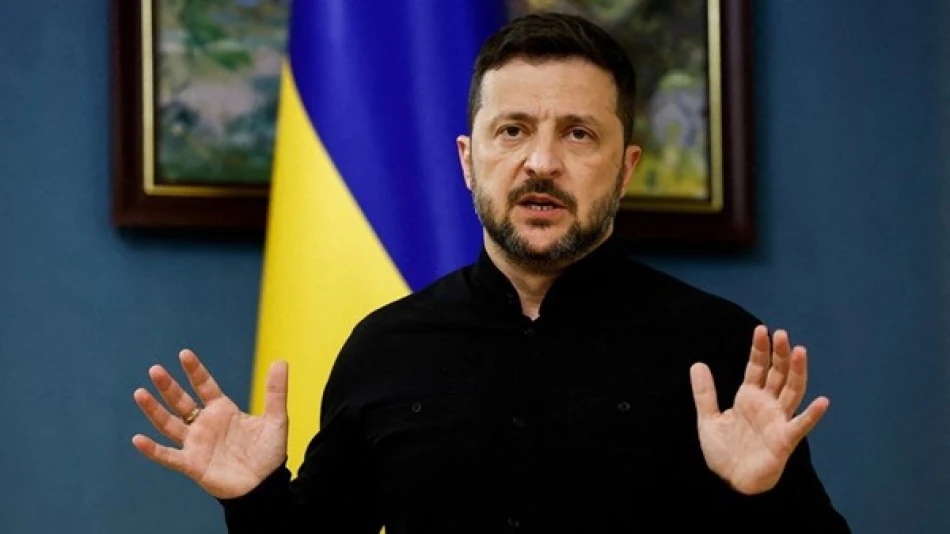
Ukraine's Zelensky Warns Against Any Decision Without Ukraine's Consent
Zelensky Rejects Land Concessions as Putin-Biden Summit Looms
Ukrainian President Volodymyr Zelensky delivered a defiant message Saturday, warning that any peace negotiations excluding Ukraine would fail to bring lasting stability. His comments come as speculation mounts over potential territorial compromises ahead of next week's planned summit between Russian and American leaders, highlighting the fundamental disconnect between Ukraine's position and international diplomatic efforts.
Ukraine's Red Line on Territorial Integrity
Writing on social media, Zelensky declared that "Ukrainians will not abandon their land," emphasizing that "any decision against us, any decision without Ukraine is also a decision against peace. It will achieve nothing."
This stark rejection of territorial concessions reflects Ukraine's consistent position since Russia's invasion began, but takes on new urgency as diplomatic pressure for a negotiated settlement intensifies. Zelensky's timing appears calculated to influence the upcoming Russian-American summit discussions before they gain momentum.
The Diplomatic Chess Game
Why Ukraine Fears Being Sidelined
Zelensky's warning reflects a historical pattern where smaller nations find their fate decided by major powers. Ukraine's leadership clearly remembers the 2014 Minsk agreements, which many Ukrainians viewed as legitimizing Russian territorial gains in exchange for temporary peace.
The upcoming Putin-Biden summit raises Ukrainian concerns that Washington and Moscow might pursue a grand bargain that trades Ukrainian territory for broader geopolitical stability. Such deals have precedent in post-war European history, from Yalta to more recent Balkan settlements.
Strategic Implications for Peace Negotiations
Zelensky's categorical rejection of land concessions creates a significant diplomatic challenge. Without Ukrainian buy-in, any territorial agreement would likely prove unstable, potentially creating frozen conflicts similar to those in Georgia or Moldova.
His statement also signals to Western allies that Ukraine won't accept being pressured into unfavorable terms, regardless of war fatigue in supporting nations. This positions Ukraine as a potential spoiler of any peace deal that doesn't meet its core demands.
Market and Geopolitical Ramifications
Financial markets have been pricing in various conflict resolution scenarios, with energy and commodity traders particularly sensitive to peace prospects. Zelensky's hardline stance suggests that any near-term diplomatic breakthrough remains unlikely, maintaining uncertainty around European energy security and global grain supplies.
For defense contractors and reconstruction investors, Ukraine's rejection of territorial compromise implies continued military spending and delayed rebuilding opportunities in contested regions.
The Broader Strategic Context
Ukraine's position reflects lessons learned from previous conflicts where territorial concessions failed to satisfy aggressor states. The 1938 Munich Agreement and more recent examples in Crimea demonstrate how partial territorial losses often encourage further expansion rather than creating lasting peace.
Zelensky's messaging also serves domestic political purposes, maintaining Ukrainian unity around maximal war aims despite mounting casualties and economic devastation. Any perceived willingness to negotiate on territory could fracture the national consensus that has sustained Ukraine's resistance.
The coming summit will test whether major power diplomacy can overcome these fundamental disagreements, or whether the conflict remains locked in its current trajectory of military rather than diplomatic resolution.
Most Viewed News

 Layla Al Mansoori
Layla Al Mansoori






